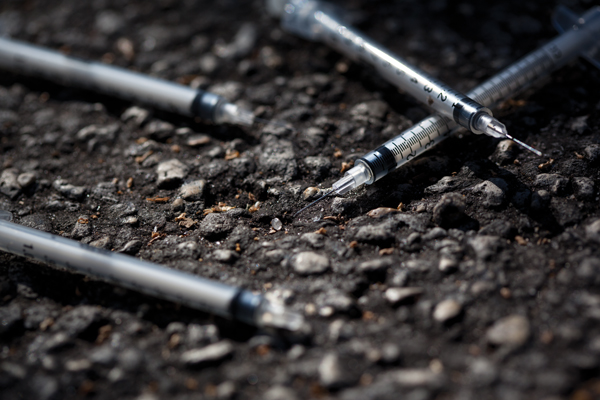
Drug users in Miami are improperly disposing of 95 percent of their used needles, according to a new study released by the Miller School of Medicine.
The study compared the number of used needles found in the streets of Miami to those found in San Francisco, Calif., a city with a program that allows users to exchange used needles for clean ones without being arrested.
Hansel Tookes conducted the study while completing his master’s degree with a team of fellow graduate students, and is now a second-year medical student. The results were published less than two months ago.
The students found that Miami had nearly eight times as many needles lying around in the streets as were found in San Francisco.
Used needles are dangerous because they can infect users with diseases like HIV, Hepatitis B and Hepatitis C.
In 2007, 15 percent of drug users who used needles were infected with Hepatitis B and 44 percent with Hepatitis C. In 2009, 9 percent of of these drug users were infected with HIV.
According to Tookes, reusing needles only further increases the chance that a user will be exposed to these diseases.
It is also possible that residents in these areas could accidentally get infected if they come in contact with these stray needles.
Tookes conducted the research in 2009 to prove that Miami needed a program similar to San Francisco’s.
He and his team of students scoured the areas of Miami with the highest number of drug arrests and drug treatment admission rates and counted every needle they saw lying in the streets. The study conducted in San Francisco used a similar method.
The final count came out to 371 needles for roughly every 1,000 blocks, while in San Francisco, it was 44 needles for every 1,000 blocks. The team also interviewed 448 drug users who who admitted to disposing a collective 9,845 needles in one month. A total of 700 needles were shared or sold by the users. These users were found in the areas of Miami surveyed and lived in Miami-Dade County.
A needle exchange program would allow drug users to exchange their used needles for clean ones, and thus minimize their presence in the streets and associated health risks. However, such a program is currently illegal. Florida law makes it a third-degree felony to provide one with drug paraphernalia with the knowledge that it will be used to inject illegal substances.
According to junior Lilly Marlaine, the co-founder and vice president of the organization Students for Sensible Drug Policy (SSDP), an exchange program could reduce crime rates.
“This program eliminates the black market so they won’t have to do what any desperate person would do to get needles,” she said.
SSDP is a drug policy reform advocacy organization that discusses topics from the public health perspective. It was founded in order to work with students and community members to develop and start programs that promote effective drug policies. It currently does not advocate for a needle exchange program, but plans to in the future.
“We support anything that works to help drug users without encouraging use,” Marlaine said. “With the program, the injection drug users are coming into contact with the government and can begin to trust it and the agencies that are extending a hand in their favor.”
Miami-Dade Police Detective Alvaro Zabaleta said the police department would enforce any exchange program if it was created by state and local legislatures.
“If legislators create a law, we have to enforce it whether we like it or not,” he said. “Our primary goal is black and white.”





